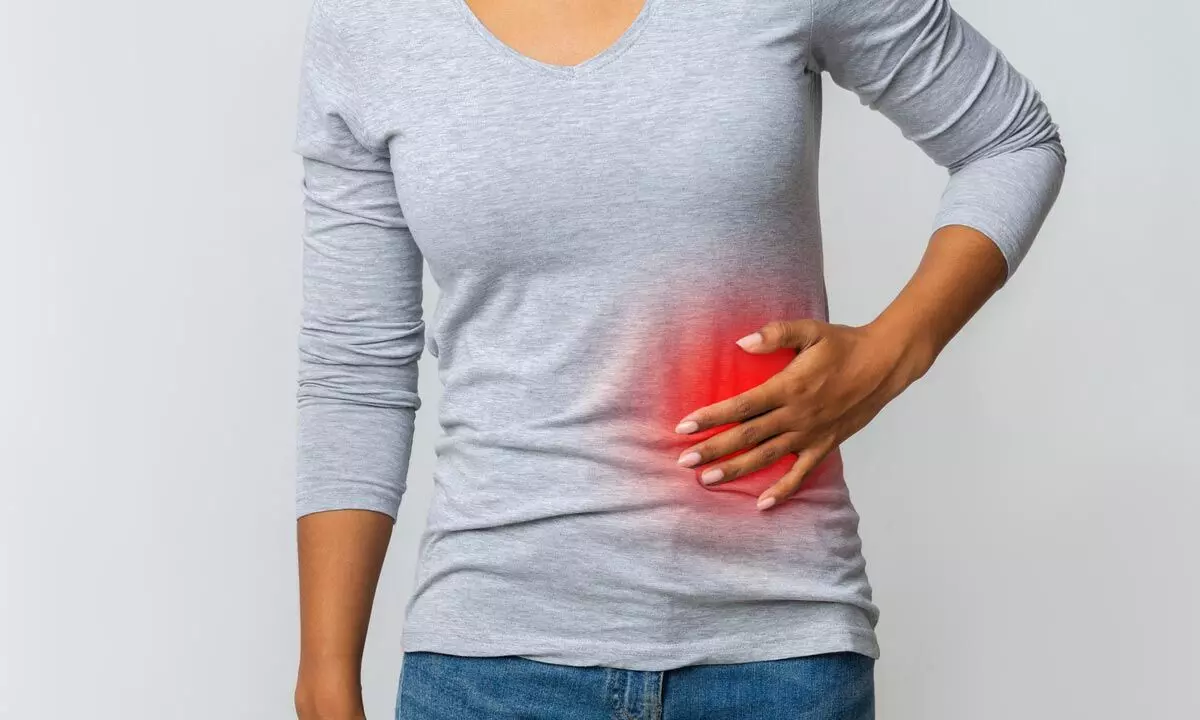Live
- Over 7,600 Syrians return from Turkiye in five days after Assad's downfall: minister
- Delhi BJP leaders stay overnight in 1,194 slum clusters
- Keerthy Suresh and Anthony Thattil Tie the Knot in a Christian Ceremony
- AAP, BJP making false promises to slum dwellers for votes: Delhi Congress
- 'Vere Level Office' Review: A Refreshing Take on Corporate Life with Humor and Heart
- Libya's oil company declares force majeure at key refinery following clashes
- Illegal Rohingyas: BJP seeks Assembly session to implement NRC in Delhi
- Philippines orders full evacuation amid possible volcanic re-eruption
- Government Prioritizes Welfare of the Poor, says Dola Sri Bala Veeranjaneyaswamy
- Two Russian oil tankers with 29 on board damaged due to bad weather
Just In
What causes pain in the left side of the Abdomen?


What causes pain in the left side of the Abdomen?
The lower left side of your abdomen is home to the last part of your colon and for some, the left ovary in those who have them. If you have minor pain, there is nothing much to worry, it would go on its own in a day or two.
The lower left side of your abdomen is home to the last part of your colon and for some, the left ovary in those who have them. If you have minor pain, there is nothing much to worry, it would go on its own in a day or two.
If you are experiencing pain due to an accident or injury, you must seek medical attention, If you feel pressure or pain in your chest.
Doctor's Day Feature: Dr. Vijay Bhaskar on the Frontiers of Pain Medicine
Some of the most causes for the pain in the left side of the Abdomen.
Diverticulitis
Diverticula are small pouches; they are created from pressure on weak spots in the colon. Diverticula are common and even more after age, 50. When the pouch tears, swelling and infection can also cause diverticulitis.
For mild diverticulitis, most people tend to respond well, a change in their diet and antibiotics. Few people also require surgery, if the condition is severe or continues to return.
Gas
For mild diverticulitis, most people tend to respond well, a change in their diet and antibiotics. Few people also require surgery, if the condition is severe or continues to return.
Passing gas as well as burping are normal. Gas can be found throughout you're your digestive tract, from your stomach to your rectum. Gas is the normal result of swallowing and digestion.
Ingestion
Ingestion usually happens after eating. Your stomach makes acid when you eat, this acid can irritate your esophagus stomach or bowel. The pain is mostly in the upper part of the abdomen but sometime very rarely it might also affect the lower abdomen.
Hernia
A hernia is the result of an internal organ or other body part pushing through the muscle or tissue surrounding it. A lump or bulge might appear with some hernias in the abdomen or groin.
Inguinal hernia
This one is result of fat or portion of the small intestine pushing through a weak area in the lower abdomen. This type of hernia is much more common in men, but it might also occur in the women.
Kidney stone
A kidney stone usually begins to cause problems when it moves around inside your kidney or into your ureter. The ureter is the tube which connects the kidney to the bladder.
Shingles
The shingles infection might cause a painful rash, which would look like a stripe of blisters wrapping one side of your body. Sometimes the rash might show up on the neck or face. Few people have pain but no rash.
Causes which only affects women
Menstrual cramps
Cramps usually occur before as well as during your menstrual period. Although the pain might range from a minor annoyance to something that infers with your daily activities, menstrual cramps are not usually serious.
Endometriosis
Endometriosis, tissue similar to that which typically lines the inside of your uterus also grows outside the uterus. This could cause abdominal pain.
Ovarian cyst
An ovarian cyst is a sac filled with fluid inside or on the surface of an ovary.
Most cyst do not produce symptoms and go away without treatment in a few months. A large cyst can cause discomfort. It might also press on your bladder can cause you to urinate more.
Ovarian torsion
Large ovarian cysts might cause the ovary to change position in the body. This might raises the risk of ovarian torsion, a painful twisting of the ovary that can cut off blood supply. The fallopian tubes might also be affected.
Ectopic Pregnancy
With ectopic pregnancy, a fertilized egg implants itself before it reaches the uterus. This usually happen inside the fallopian tubes thus connecting the ovary to the uterus. You may or might not have symptoms with an ectopic pregnancy.
Pelvic inflammatory disease (PID)
The PID is an infection of the female reproductive system. It is commonly caused by the sexually transmitted infections (STI), such as chlamydia and gonorrhea, but other types of infections might also lead to PID.

© 2024 Hyderabad Media House Limited/The Hans India. All rights reserved. Powered by hocalwire.com






